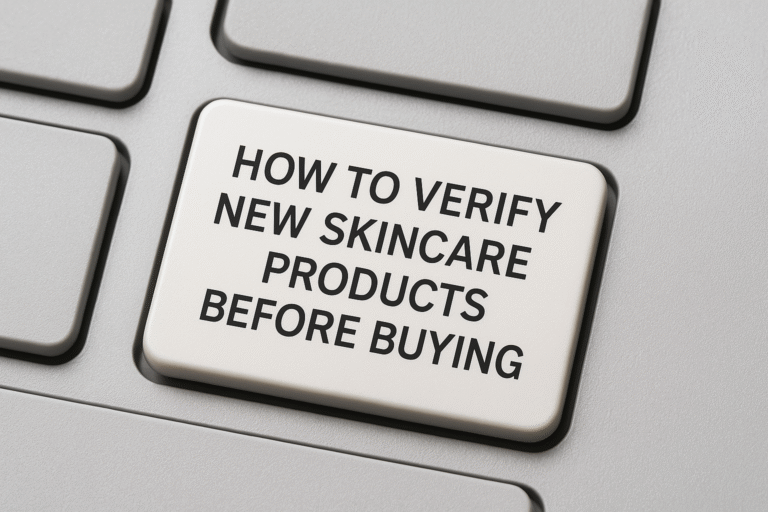Top 50 Interesting Skincare Facts You Need to Know Now!

Having radiant, smooth, and clear skin is something many of us strive for—but reaching that goal requires more than just wishful thinking. Without consistent care and the right strategies, healthy skin remains out of reach. While most people understand the basics of sun protection and anti-aging efforts, there’s a lot more to learn about the science and daily habits behind good skincare. The more knowledge you gain, the more empowered you’ll be to treat your skin with the attention it truly deserves. (Skin Care Quotes That Will Inspire You.)
Let’s explore some of the most interesting and surprising skincare facts, thoughtfully categorized to make them easy to follow.
Top 50 Skincare Facts
🧴 General Skincare Facts
- Your skin is the largest organ of your body, playing a vital role in protection and sensation.
- The typical adult carries around 22 square feet of skin, weighing roughly 8 pounds.
- Skin naturally sheds and renews itself approximately every 28 to 40 days.
- A surprising amount—more than 50%—of household dust comes from your dead skin cells.
- As early as your mid-20s, your body starts to slow down collagen production.
- Staying hydrated internally can significantly boost your skin’s elasticity and appearance.
- Ingredients in skincare matter—skin can absorb as much as 60% of what’s applied to it.
- The skin’s surface maintains a slightly acidic pH, typically between 4.5 to 5.5, to keep harmful bacteria at bay.
- People with naturally oily skin may develop wrinkles more slowly due to added hydration.
- Your body sheds approximately 30,000 to 40,000 skin cells every minute.
🌞 Sun & SPF Facts
- Exposure to UV rays is responsible for up to 90% of premature skin aging.
- Daily sunscreen use is essential—even on cloudy days or when you’re indoors near windows.
- UVA rays contribute to aging, while UVB rays cause sunburn—broad-spectrum SPF protects from both.
- SPF ratings reflect the time your skin is protected before burning compared to unprotected skin.
- For effective coverage, apply about one teaspoon of sunscreen per area (e.g., face or each arm).
- There’s no such thing as a “safe” tan—tanning is a form of skin damage.
- Blue light from screens may speed up skin aging by triggering oxidative stress.
- Topical Vitamin C helps defend against environmental stress and reduce signs of sun damage.
🧼 Cleansing & Exfoliating Facts
- Cleansing too often or too harshly can weaken your skin’s natural barrier.
- Double cleansing (starting with an oil-based cleanser followed by a gentle water-based one) is ideal for removing heavy makeup and sunscreen.
- Scrubbing with physical exfoliants may cause tiny tears in the skin; chemical exfoliants are typically more skin-friendly.
- Excessive exfoliation can lead to dryness, breakouts, or inflammation.
- Using lukewarm water is ideal—hot water can strip natural oils and dehydrate the skin.
💦 Moisturizing Facts
- Moisturizers work by sealing in existing moisture, not by adding water to your skin.
- Applying lotion or cream to slightly damp skin increases hydration retention.
- Ingredients like ceramides, hyaluronic acid, and glycerin help strengthen the skin barrier and attract moisture.
- Even oily skin types need hydration—dehydrated skin can actually produce more oil.
- Occlusive agents like shea butter or petroleum jelly prevent moisture loss, especially at night.
🧪 Ingredients & Product Facts
- Retinol increases cell turnover and boosts collagen, but it should be introduced gradually.
- Niacinamide helps balance oil, reduce redness, and support an even skin tone.
- Salicylic acid penetrates oil-clogged pores, making it effective for acne and blackheads.
- Lactic acid and glycolic acid not only exfoliate but also improve hydration and texture.
- Fragrances in products can be irritating for people with sensitive or reactive skin.
- Always patch test new skincare to prevent allergic or adverse reactions.
- Don’t assume “natural” means safe—not all natural ingredients are skin-friendly.
💄 Lifestyle & Skin Connection
- Not getting enough sleep can cause dullness and worsen under-eye darkness.
- Stress hormones can increase inflammation, triggering acne and flare-ups.
- What you eat affects your skin—excess sugar, dairy, or processed foods may contribute to breakouts.
- Smoking decreases blood flow, reducing oxygen and nutrient delivery to the skin.
- Alcohol can dry out your skin and increase redness over time.
👶 Age, Skin Type & Routine Facts
- Your skincare needs change with age, seasons, and hormonal shifts.
- Men’s skin tends to be thicker and oilier than women’s, often needing different formulations.
- Teens usually have oilier skin and acne-prone concerns, while mature skin needs more nourishment.
- People with melanin-rich skin can still develop sun damage and should use sunscreen regularly.
- Skincare results take time—allow at least 4 to 8 weeks to see changes after starting new products.
💡 Fun & Surprising Skin Facts
- The word “dermatology” comes from the Greek word derma, meaning skin.
- Your skin hosts its own ecosystem of microbes that help defend against harmful invaders.
- Human skin supports over 1,000 different species of bacteria—most of them beneficial.
- Remedies like aloe vera and honey have been used in skincare for centuries across cultures.
- A genuine smile improves blood flow, which can brighten your complexion and promote a healthy glow.
🌟 Skincare Knowledge = Skincare Power
The better you understand your skin, the better choices you can make to care for it. Skincare facts aren’t just about appearance—it’s about protecting your body’s first line of defense. Knowing the “why” behind your routine helps you use products more effectively and skip unnecessary steps. Consider these 50 skincare facts your secret weapon to achieving healthy, balanced, and radiant skin—day by day, layer by layer.

